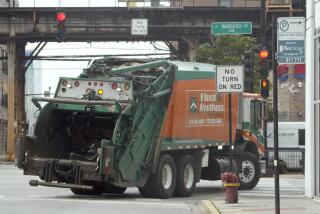Conservation Is Just Common Sense
- Share via
I can remember as a child growing up in a rural Pennsylvania area in the mid-1960s wondering how much it cost to keep the traffic lights running during the quiet hours of the night. There couldn’t have been more than one, maybe two cars that would be driving through town. For what purpose was it necessary to leave the traffic lights on?
Then I moved to Philadelphia, and one of the things I used to ask people is why is it necessary for the lights in office buildings to remain on in the middle of the night. One response I got that placated me for a short time was that it was for the cleaning people. I had stayed at the office late and encountered the cleaning people myself on several occasions, so that seemed reasonable. But the reason that they left the lights on after they had left still confounded me. Why was it necessary for so many lights to be lit? Wasn’t there a way to automatically sense that no one was in the office and turn the lights out after a certain amount of time? So I would always look up at the skyscrapers and think, “What a waste.”
I’m not some holier-than-thou zealot who freaks out over people wasting resources, but I am concerned. I have always wondered about what I can do, so let this be a first step.
Let’s look at the technology we have today. How can it be that we cannot use our energy resources more efficiently with this technology? What does it take to make some minor changes in how we utilize our resources? Does it always have to fall on the home consumer in the form of higher rates?
Anyone can get timers for their lights. Business owners and government offices can recommend that the lights be turned out in every empty office. Building managers can install motion sensors; they are not that expensive and can save both the tenant and the building owner piles of money.
We need to run our computers and lights and phones and numerous other things, but we can take advantage of the technology we have at our disposal. We all can become more conscious about our resources and turn the lights off when leaving a room.
*
Sheevaun Moran lives in Huntington Beach.


